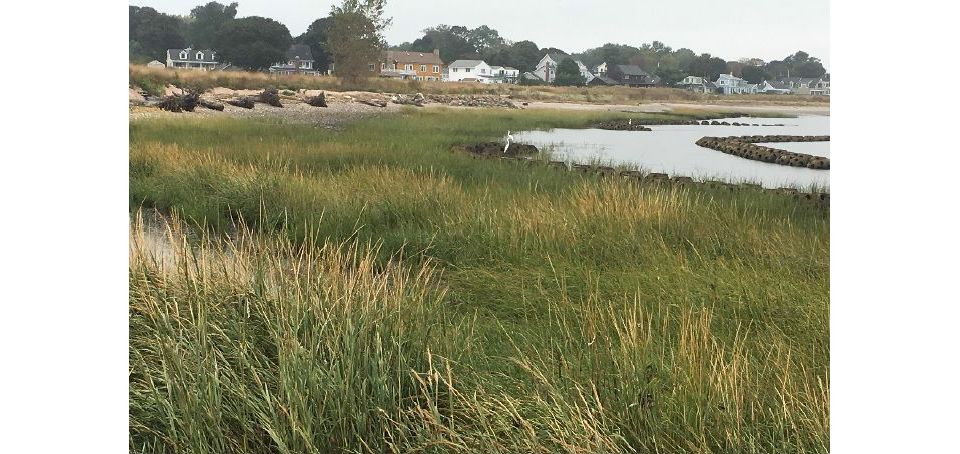Introduction
Natural Climate Solutions, also called Nature-Based Solutions, are actions that reduce emissions and increase carbon storage in forests, farms, grasslands and wetlands, while providing a host of additional benefits for people and the environment.
Practices that could be included are actions like encouraging farming techniques that retain carbon in the soil, such as planting cover crops; conserving and replanting forests; conserving and restoring coastal wetlands; and reducing the loss of natural areas, planting trees, and providing parks in communities.
Not only do these efforts help address climate change – they can improve water quality, prevent natural disasters like wildfire, drought, and flooding, protect wildlife habitat, and provide opportunities for hiking and fishing. Best of all, these solutions are cost effective, and can often improve local economies.
Below you can explore how people in Connecticut are benefiting from implementing nature-based solutions in their community through a diverse set of resources from USN4C members and others, including blog articles, videos, comprehensive reports, and more.

Blog Articles
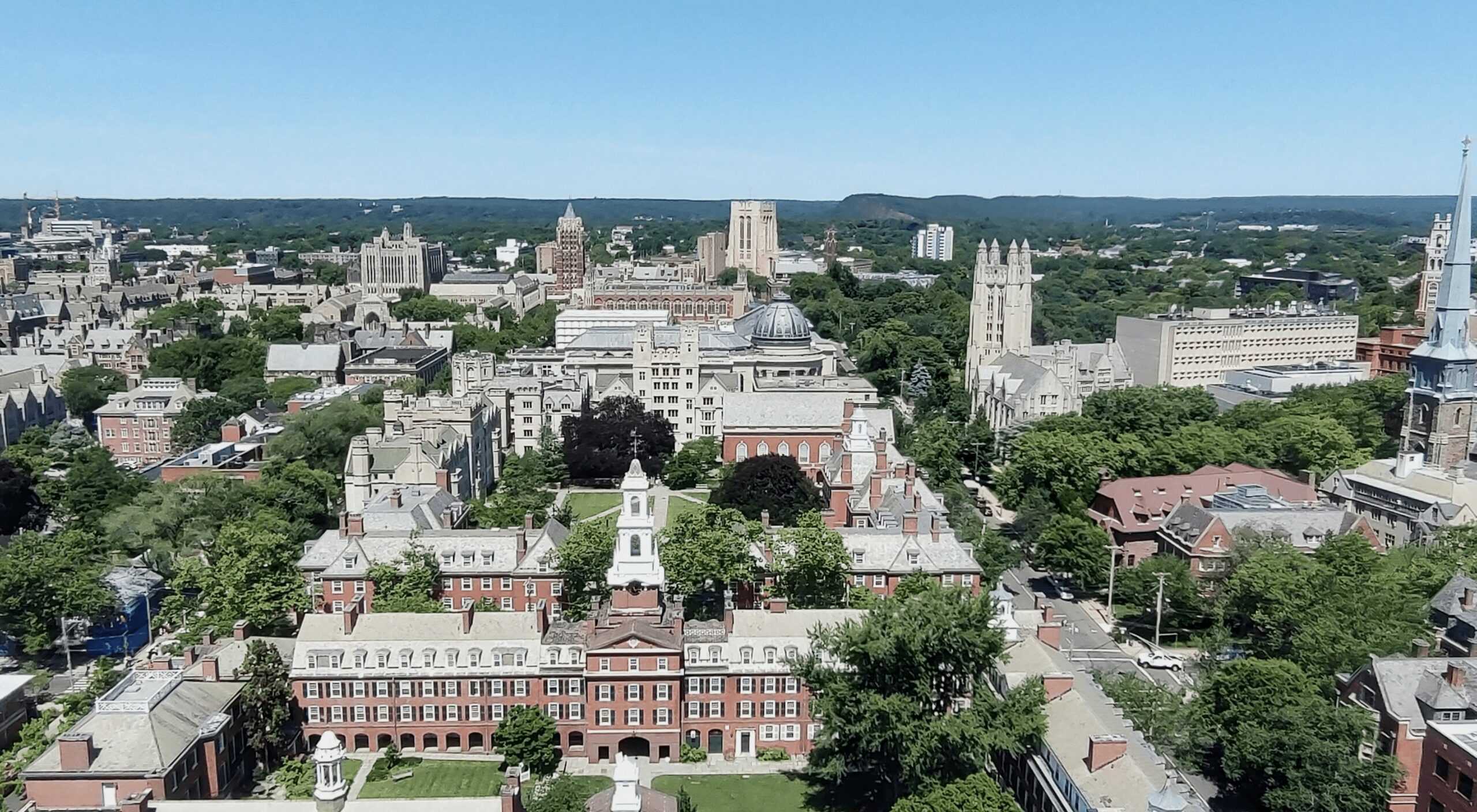
© The Nature Conservancy/Laura Shail
The Nature Conservancy Article: Urban Conservation: Cities for nature, and nature for cities.
Forests:
- National Association of Conservation Districts Press Release: NACD Announces Urban and Community Conservation Grants for 35 Recipients
- The Nature Conservancy Press Release: The Nature Conservancy Awards Over $1.2 million To Projects in Northern Appalachian States Through New Grant Program
- National Association of Conservation Districts Press Release: NACD Awarded $585,82 U.S. Forest Service Landscape Scale Restoration Grant to Advance Regional Conservation Efforts
- USDA Forest Service Region 9 Press Release: USDA Forest Service Invests Nearly $3.9M to Restore Tribal, State and Private Forests Across Eastern Region
- SCIENCE: Ecosphere Study: Net carbon sequestration implications of intensified timber harvest in Northeastern U.S. forests
- U.S. Nature4Climate Blog Article: Building a Robust Reforestation Pipeline: Key Takeaways and Recommendations from Interviews with Nursery Managers in the Northeastern United States
- U.S. Nature4Climate/Trust for Public Land Blog Article: Saving America’s forestlands one community forest at a time
Agriculture:
- SCIENCE: Carbon Balance and Management Study (Conservation International): Maximizing Tree Carbon in Croplands and Grazing Lands While Sustaining Yields
- American Farmland Trust Article: Demystifying Soil Health Management Planning: Farmers Share Perspectives on a New England Peer-to-Peer Program
- American Farmland Trust Article: There Is No More Normal: New England’s Farmers Respond to a Changing Climate
Coastal Wetlands:
- U.S. Nature4Climate Blog Article: Tapping into the Potential of Blue Carbon: A Natural Solution to Climate Change and Coastal Resilience
- Pew Charitable Trusts Article: States Improve How They Assess Coastal Wetlands’ Impacts to Reduce Climate Pollution
- National Wildlife Federation Article: What Is Marine Carbon Dioxide Removal?
- The Nature Conservancy Press Release: NOAA Announces $220 Million for Coastal Conservation and Restoration Projects
- U.S. Nature4Climate/Pew Charitable Trusts Blog Article: Carbon Captured by Coastal & Ocean Habitats Can Advance States’ Climate Goals: Experts discuss growing ‘blue carbon’ data and resources, and their potential role in policy
Reports

The Nature Conservancy in Connecticut: Annual Report 2024
Videos & Podcasts
The Nature Conservancy Video: Trees in Peril
Explore More!
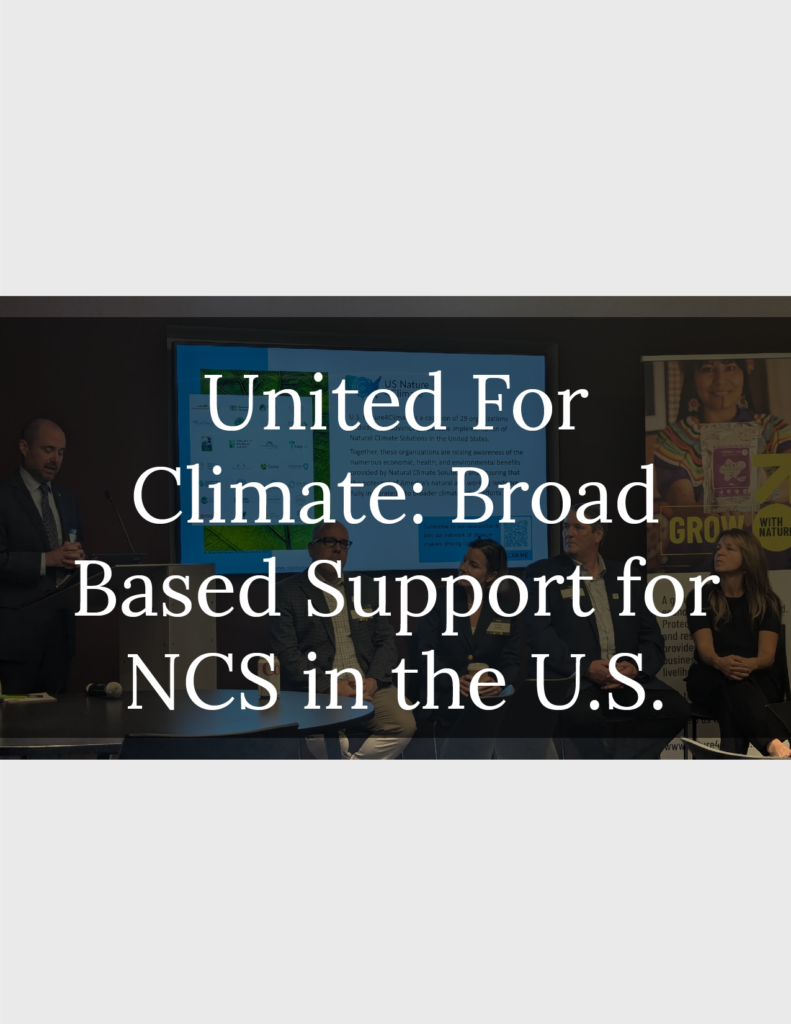
A new national survey conducted by U.S. Nature4Climate shows that voters across party lines support natural climate solutions more than ever, suggesting fertile ground for bi-partisan cooperation and consensus-building, opening up new avenues for climate action. Learn more.
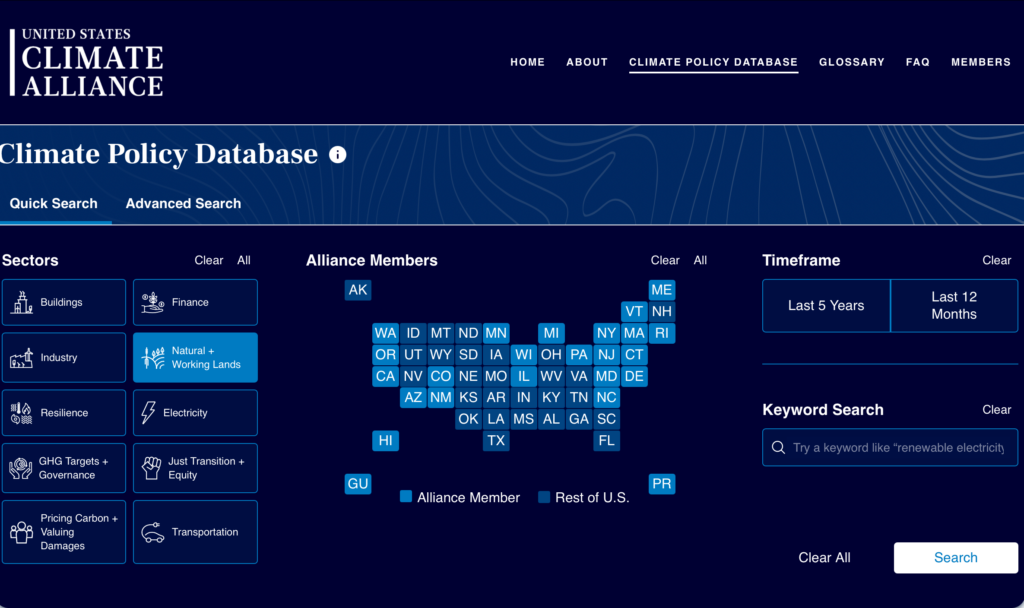
Explore U.S. Climate Alliance‘s Climate Policy Database.
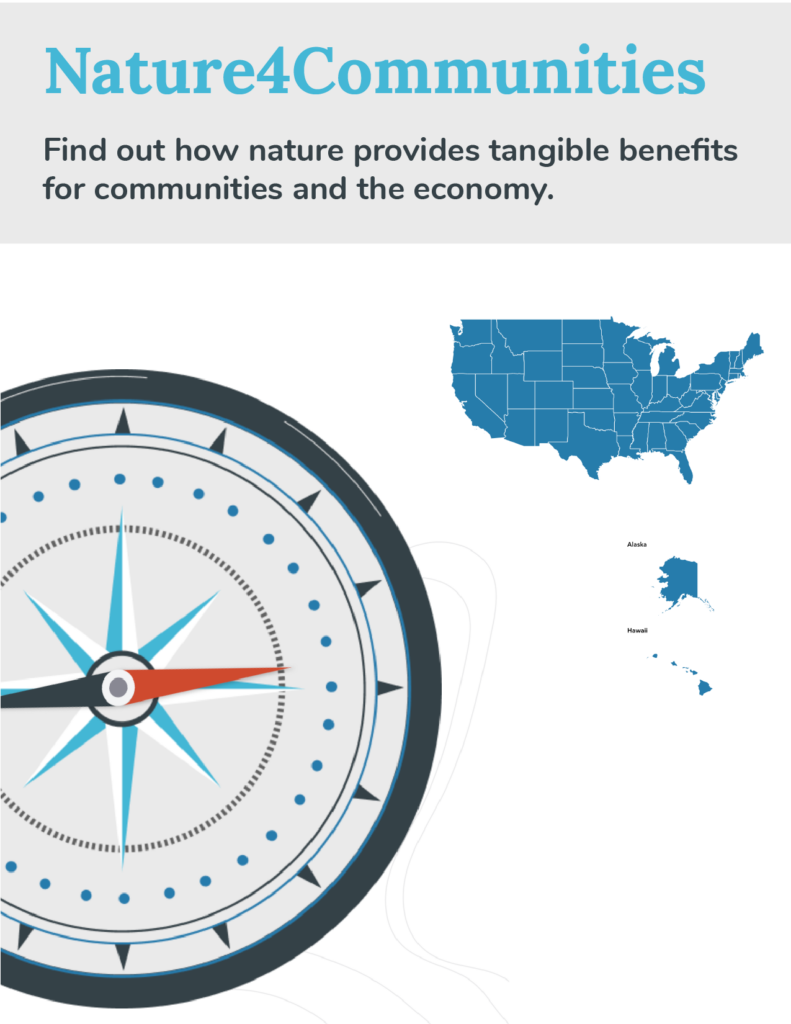
Explore Nature4Communities, a resource that shows you how nature-based solutions are critical for your community’s well-being and become a better advocate for their implementation.


